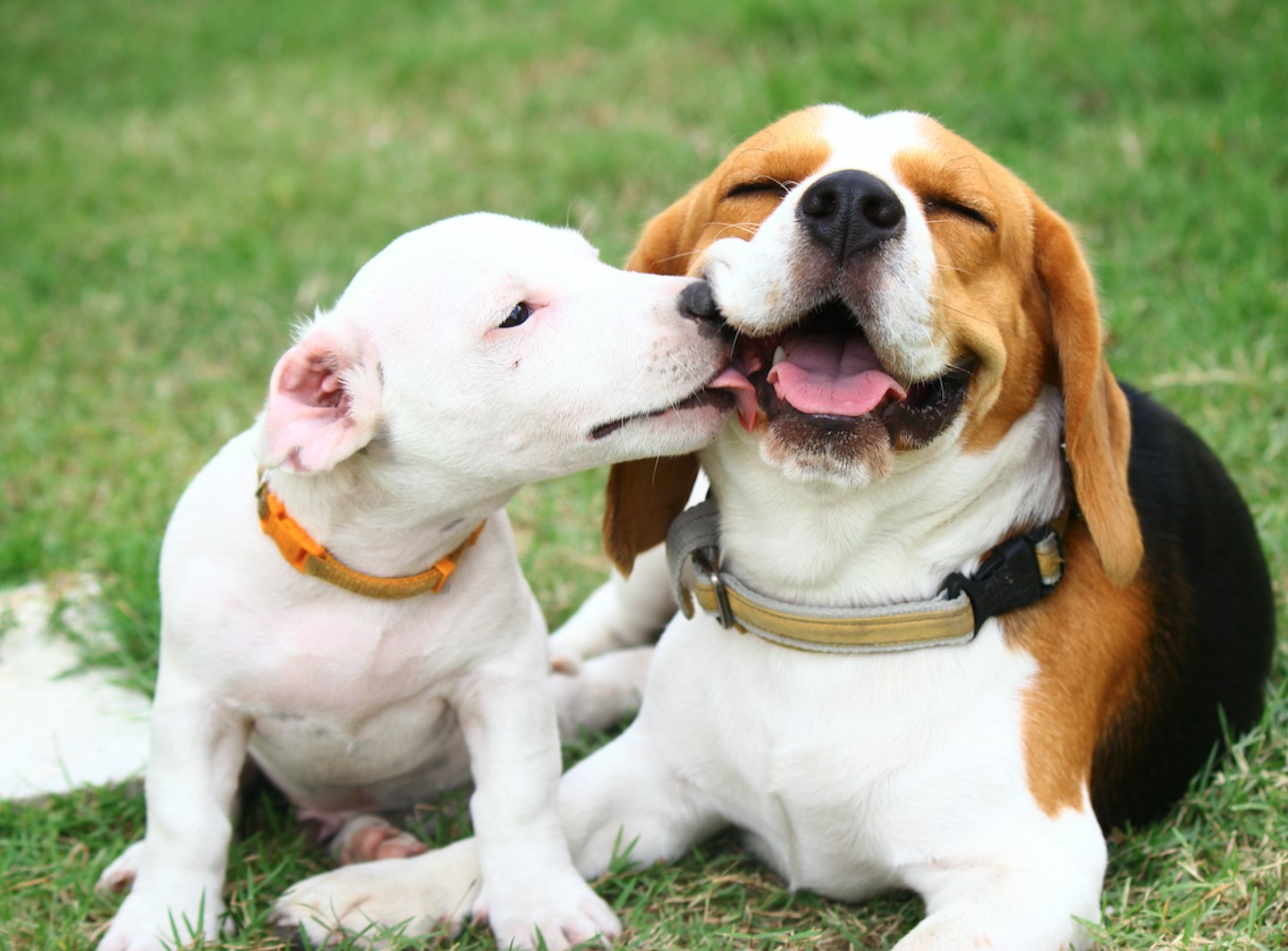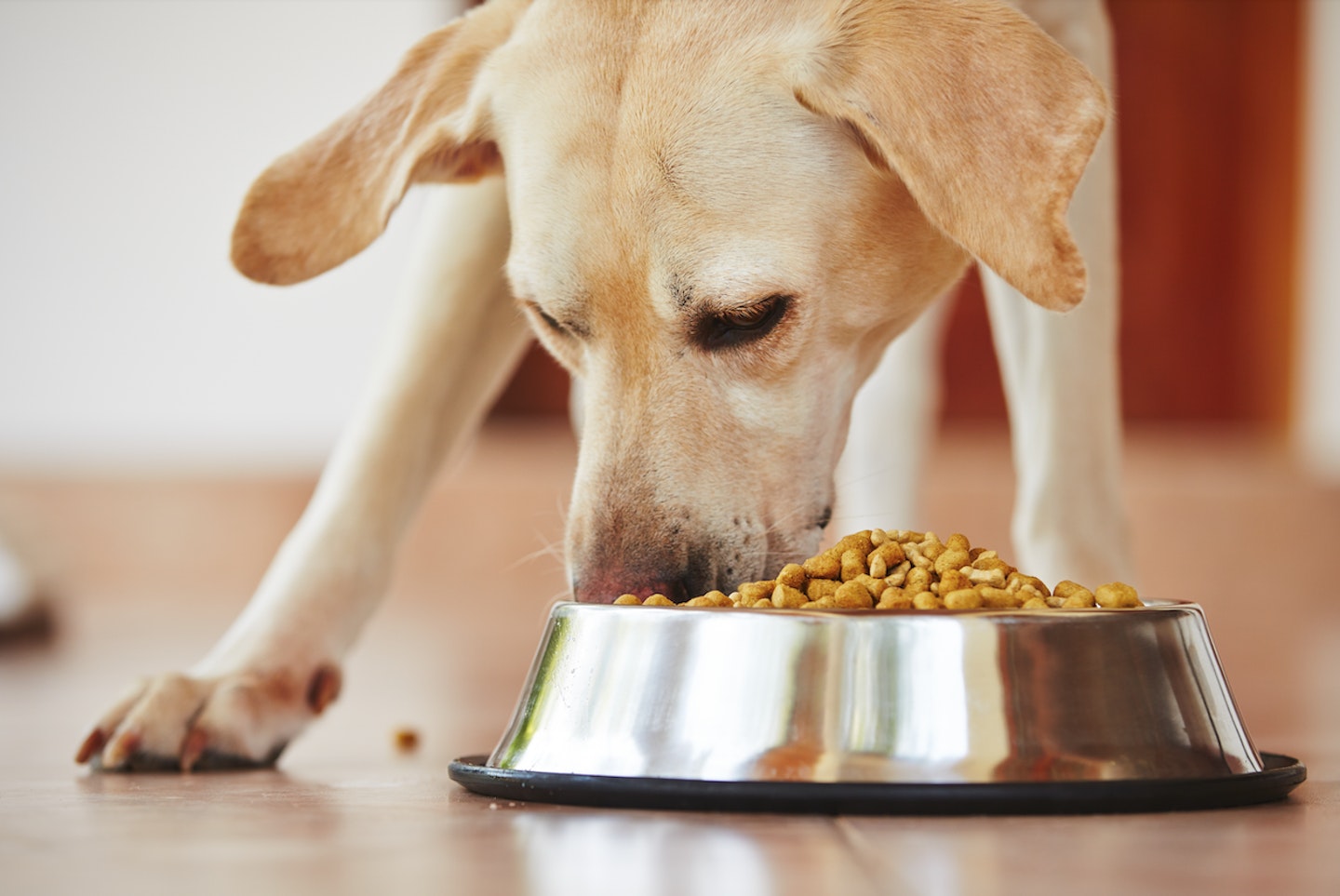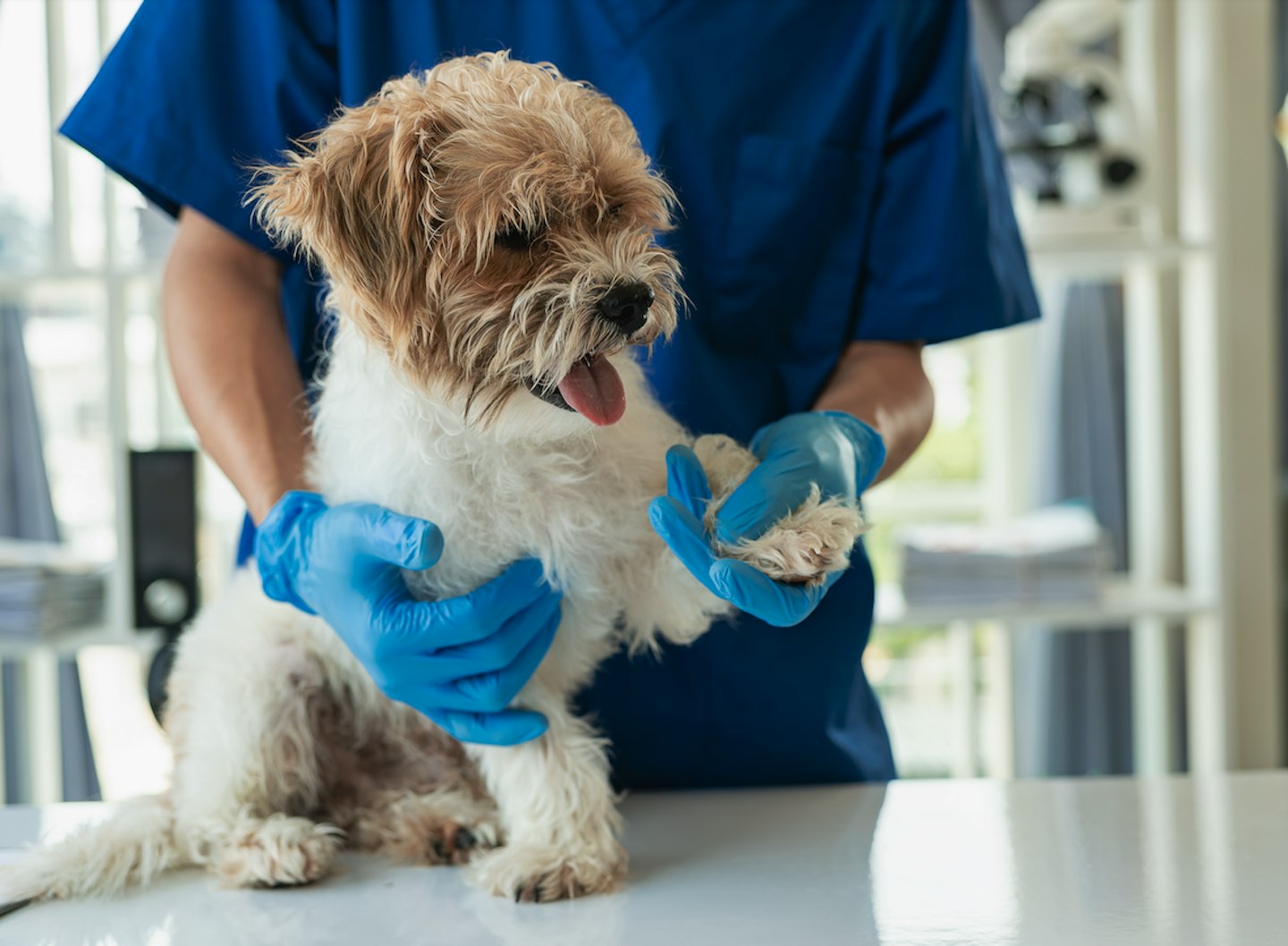While all dogs vomit every now and then, as a pup parent, it can still be distressing to see your dog throwing up undigested food. Even if you’re feeding your precious pet the best dog food, from eating too fast to infections to chronic health conditions, there are many reasons why your dog might be sick. But when is it something to worry about?
Below, with the help of vet Anna Ewers Clark, we look at why your dog might be throwing up undigested food, what their vomit can tell you, and when it is time to seek veterinary help.

Why do dogs throw up?
There are a variety of reasons why your dog might throw up. To uncover what is going on with your pooch, it helps to have a basic understanding of their digestive system.
When your dog has something to eat, chewing and saliva start the breakdown process. Then it goes down their oesophagus into their stomach which breaks down the food further. This partially digested grub enters their small intestine – which absorbs nutrients - before the waste is passed into the large intestine.
When your dog spits up undigested food, it is important to determine whether they have vomited it up (which can be a sign of a bigger problem) or whether they have regurgitated their food.
Regurgitation
This frequently happens if a dog eats their food too quickly or they eat too much. The food will be undigested and is often in a cylindrical shape (as it has come from their oesophagus). Unlike vomiting, there are generally no signs – such as retching – that your dog is about to regurgitate their food.
It is not usually a cause for concern as, more often than not, it’ll be a result of your greedy pup wolfing down their dinner too quickly!
If you find your dog is often regurgitating their food, encourage them to eat more slowly by feeding them smaller, more regular meals, or try out a slow feeder bowl instead.
If they continue to regurgitate, it could be a sign of megaoesophagus, a condition that requires veterinary attention.
Vomiting
Before dogs throw up, they tend to show symptoms of discomfort, including retching, salivating, pacing and abdominal contractions.
There can be many reasons for your dog throwing up undigested food, including having a sensitive stomach, heatstroke, eating something they shouldn’t have, a change in diet, travel sickness, internal parasites, viral infections – and even more serious conditions like cancer and diabetes.
It often won’t be obvious what is causing your dog to vomit – and it is always best to seek veterinary advice if you’re concerned.
However, the vomit itself might be an indication as to what is wrong.

What your dog’s vomit is telling you
Examining your dog’s sick might not be particularly appealing, but it can give you an idea of just what is up with your pup. Check out our guide below:
Vomit with chunks in – This could be a sign your dog has eaten something they shouldn’t have. Looking at the contents could give an indication of what they’ve consumed (for example, bits of fluff could be from a cuddly toy/cushion etc).
Black vomit – If your dog’s sick is dark brown or black this is cause for concern, as it could mean there is blood in the vomit. Seek veterinary assistance. Meanwhile, light brown vomit could mean your dog has ingested chocolate. Again, this needs medical attention.
Smelly vomit – If your pup’s throw-up has a distinctive, rancid smell it could be a sign they have parvovirus. This is a highly contagious viral disease that commonly causes gastrointestinal illness in puppies.
Green, foamy vomit – If your dog is throwing up a greeny/yellowy foamy liquid, it could be a sign they are hungry. Dogs produce bile when they are anticipating a meal – and the foam could be from your pup salivating.
However, this type of vomit could also be a sign that something is stuck in your dog’s stomach, but only bile is coming up. You’ll need to take your pup to the vet so they can check for any foreign bodies.
Other signs to look out for
Generally, it should take two to three hours for your dog's stomach to empty – and never longer than four to five hours. If undigested food is being thrown up six to eight hours after eating there is likely a problem.
Vomiting undigested or partially digested food long after your pooch has eaten could be a sign of a blockage in the stomach. A blockage could stop the food from passing through the stomach, resulting in it getting pushed back up – causing your pup to throw up.

What to do if your dog throws up
If you don’t think your dog’s vomiting is a medical emergency (for example, if they overindulge on too many table scraps and then throw up), it might be OK to simply monitor their behaviour, as their stomach could just be settling itself. However, it’s still a good idea to keep your vet in the loop as they know your pet best and can advise accordingly.
If it happens more than once, they may, for example, advise switching their diet for a food specifically for dogs who are fussy eaters.
If your pup has a mild stomach upset, it is also advised to:
• Provide your dog with plenty of fresh water
• Skip their next meal, and then give them a smaller meal when they next eat. If they keep that down, return to their normal routine)
• And if they’re not back to normal within 24 hours, book an appointment with your vet
When is it an emergency?
Your dog needs urgent veterinary care if they are:
• Vomiting and having seizures
• Being sick repeatedly or alongside other symptoms (such as change in behaviour, fever, lethargy, and weight loss)
• Throwing up blood
• Heaving and nothing is coming up
• Suspected of having ingested a foreign body or something toxic
Remember to take a sample of the vomit with you for your vet to examine.

Precautions you can take to protect your dog
The best way to prevent your dog from being sick due to illness is to ensure they are up to date with their vaccinations.
You can also make some changes around the home to reduce the risk of your pooch ingesting something they shouldn’t.
Make sure your bins are securely shut, keep laundry away from your dog, and keep food not meant for them out of reach along with any toxic food for dogs and everyday substances (like chewing gum, medication, cleaning supplies etc.)
FAQs
Below, vet Anna Ewers Clark, answers your frequently asked questions about dogs throwing up undigested food.

Why is my dog throwing up undigested food hours after eating?
There can be lots of reasons why your dog brings up undigested food, even if this happens a while after their meal.
Vomiting undigested food just after eating may be a sign of eating too fast, however, vomiting undigested food several hours after eating may suggest a problem with emptying of the stomach.
Should I be worried if my dog throws up undigested food?
If this just happens once, it’s not usually something to worry about.
But if your dog brings up their food after eating regularly, especially if they seem unwell in themselves, you should get them checked by your vet as there could be a medical reason why.
When should you be concerned about a dog throwing up? What does concerning dog vomit look like?
If your dog seems unwell in themselves, isn’t eating or has low energy, this could be a cause for concern.
You should also contact your vet if your dog is vomiting multiple times, is vomiting for more than 24 hours or has vomit which contains blood (this may be bright red, dark red or black specks).
Consider if your dog may have eaten something poisonous, or if they may have swallowed something that could cause a blockage (e.g. part of a toy) as both can need urgent treatment. Other additional symptoms, for example, weight loss, drinking more or coughing, may suggest an underlying problem.
You know your pet best, if they are vomiting and you’re worried about them, it’s safest to get them checked by your vet.
Why is my dog throwing up but acting normal?
If your dog has only vomited once and is behaving normally, then this isn’t usually a sign of concern. Often they will get better on their own, but sometimes it can help to temporarily give them a bland diet.
However, if they keep vomiting it’s important to contact your vet, even if they’re behaving and eating normally. Identifying and treating a problem before your dog becomes unwell can mean they recover much more quickly.
What colour is pancreatitis vomit and parvo vomit in dogs?
Dogs don’t have different colours of vomit for different diseases.
However, there are often other symptoms that can help your vet identify different diseases, for example abdominal (belly) pain, changes in eating or drinking, or the presence of diarrhoea.
Most dogs with pancreatitis or parvovirus will be very sick.
This article contains expert advice from Anna Ewers Clark, Veterinary and Research Standards Lead at Blue Cross, a charity that finds homes for abandoned or unwanted pets and keeps pets healthy by promoting welfare and providing veterinary treatment. Since graduating from the Royal Veterinary College in 2015 she has worked in small animal veterinary practices in both the charity and private sector. She also has a degree in Animal Behaviour and Welfare. Anna lives with her dogs, Kirk and Jerry, and two rescue rabbits, Jack and Harley.
Joe Brothwell is editor of Take a Break Pets and adores all creatures great and small. Despite being a doting cat dad to Winnie, she continues to be aloof!
